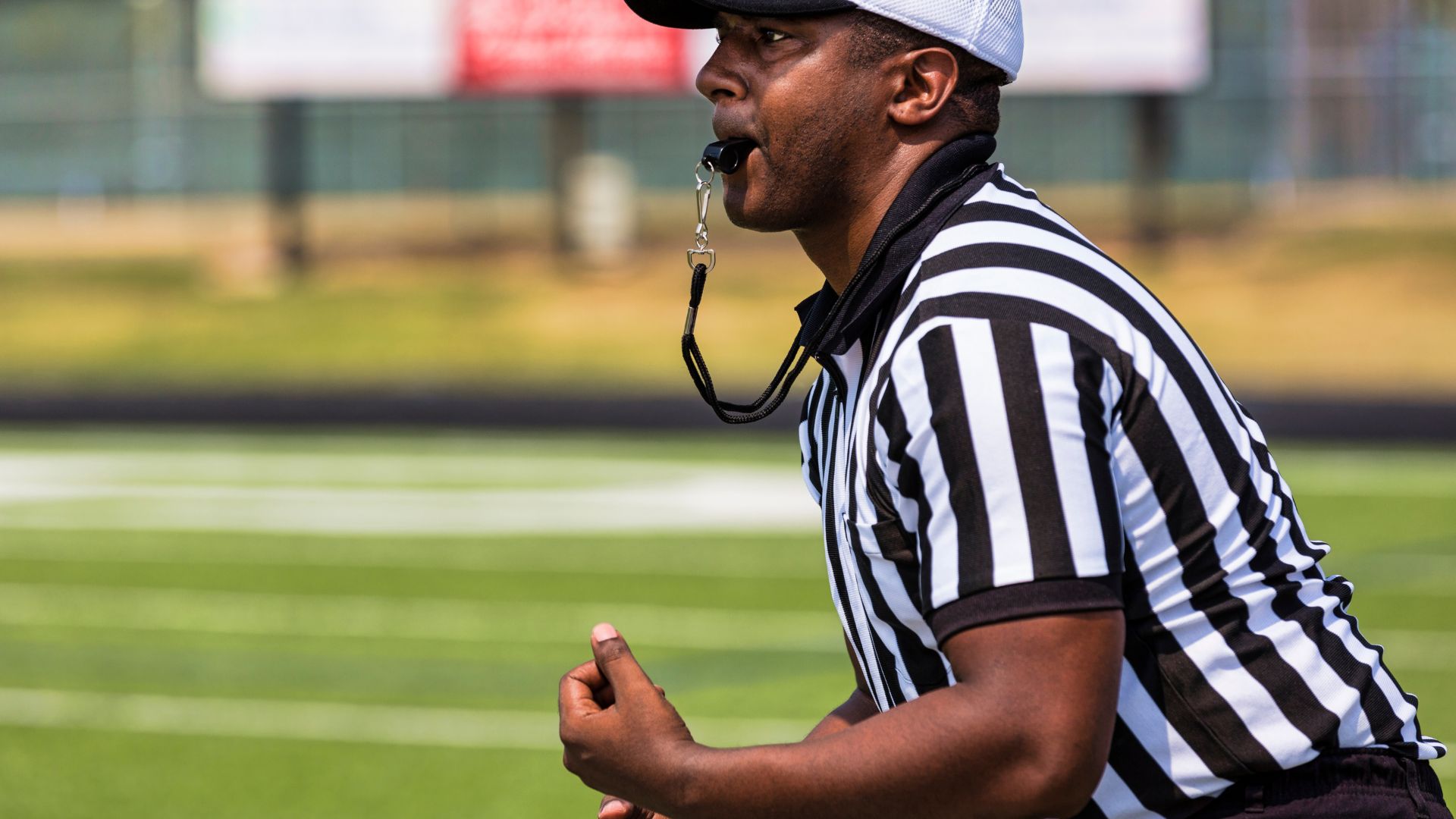Have you ever wondered how much the rugby referees receive for calling calls during matches?
Let’s investigate rugby officiating and find the answer to the puzzle of referee compensation.
Introduction to Rugby Refereeing
Referees are the unsung heroes of rugby; their split-second decisions can determine the outcome of a match.
From small-scale competitions to the World Cup, these referees are essential to the integrity of rugby.
However, what about their salaries? It goes beyond simply hoisting flags and blowing whistles.

Factors Affecting Referee Pay
The salary of a rugby referee isn’t a one-size-fits-all deal. Several factors come into play:
Level of Competition
Officiating a local club match won’t fetch the same pay as refereeing a Six Nations Championship game.
World Rugby and national bodies like the Rugby Football Union (RFU) have different pay scales for various levels.
Experience and Qualifications
Just like in any job, experience counts.
Experienced referees like Wayne Barnes and Nigel Owens fetch larger compensation.
The evaluation of a referee’s worth is also heavily influenced by their qualifications and performance reviews.
Part-time versus full-time refereeing
While some referees work as officials full-time, others combine it with day employment.
Full-time professional referees often have annual contracts with guaranteed income.
Pay Structure for Rugby Referees
Rugby referees don’t just get a flat rate. Their compensation package can include:
Match Fees
This is the bread and butter for many refs – a set amount for each game officiated.
Fees vary wildly from amateur leagues to professional matches.

Annual Contracts
Elite-level referees might snag annual contracts from national unions or World Rugby.
These contracts provide a stable income and often include performance bonuses.
Expenses and Allowances
Don’t forget the perks! Many refs get travel expenses, accommodation, and meal allowances.
For international games, this can mean jetting around the world on someone else’s dime.
Salary Ranges for Different Levels
Let’s break it down by level:
Grassroots and Amateur Leagues
At this level, it’s generally more about love of the game than making income.
Refs might make between £20 and £80 a game, depending on the league and area.
Professional Domestic Leagues
Things start looking up in pro leagues like the English Premiership or French Top 14.
Referees here can earn several hundred pounds per match, with top officials pulling in £50,000+ annually.
International Matches and Tournaments
This is where the big bucks are. Officiating Six Nations or Rugby World Cup matches can be lucrative.
Top international referees can earn six-figure salaries, with match fees in the thousands.
Rugby referee pay scales are as varied as the game itself, ranging from modest match fees to substantial annual contracts.
Comparison with Other Sports’ Referee Salaries
How does rugby referee pay stack up against other sports? Let’s glance at this quickly:
- Football (soccer): In addition to match payments, Premier League referees can make up to £70,000 a year.
- Cricket: Elite panel ICC umpires can get around $100,000 per year.
- American football: The average yearly salary for NFL referees is $205,000.

Rugby is in the center, with elite referees paid roughly the same as in football but usually less than NFL officials.
Advancement in Career and Earning Potential
Gaining recognition as a highly compensated rugby referee takes time. There’s an obvious route:
- Start at grassroots level, often volunteering
- Gain qualifications through courses and assessments
- Progress through local leagues to regional competitions
- Get noticed by national bodies for higher-level appointments
- Potentially reach international level and full-time status
As refs climb this ladder, their earning potential increases significantly. Those who make it to the top can enjoy a comfortable living from officiating alone.
Challenges and Rewards of Rugby Refereeing
While the financial rewards can be significant, refereeing isn’t just about the money. It comes with its own set of challenges:
Challenges:
- High-pressure decision-making
- Fitness requirements
- Potential abuse from players, coaches, and fans
- Time away from family for travel
Rewards:
- Being at the heart of the action in major tournaments
- Respect from the rugby community
- Opportunity to shape the game
- Travel and cultural experiences
Conclusion
Rugby referee pay varies greatly, ranging from six figures for senior international officials to pennies at grassroots levels. Although not every referee will go on to become the next Wayne Barnes or Nigel Owens, there is a clear road to a financially and personally fulfilling career for those who possess the necessary talent, commitment, and love for the game.
Rugby refereeing offers a unique chance to stay connected in the sport at the highest levels, whether it’s for the love of the game or the possibility of a rich career. The demand for qualified officials is expected to rise along with the game’s global expansion, possibly leading to an increase in their pay.
Recall that every outstanding rugby match is the result of a referee calling hard decisions and maintaining fair play. The next time you watch a game, remember the men and women in the center. Although they may not be scoring tries, they are undoubtedly making a living.